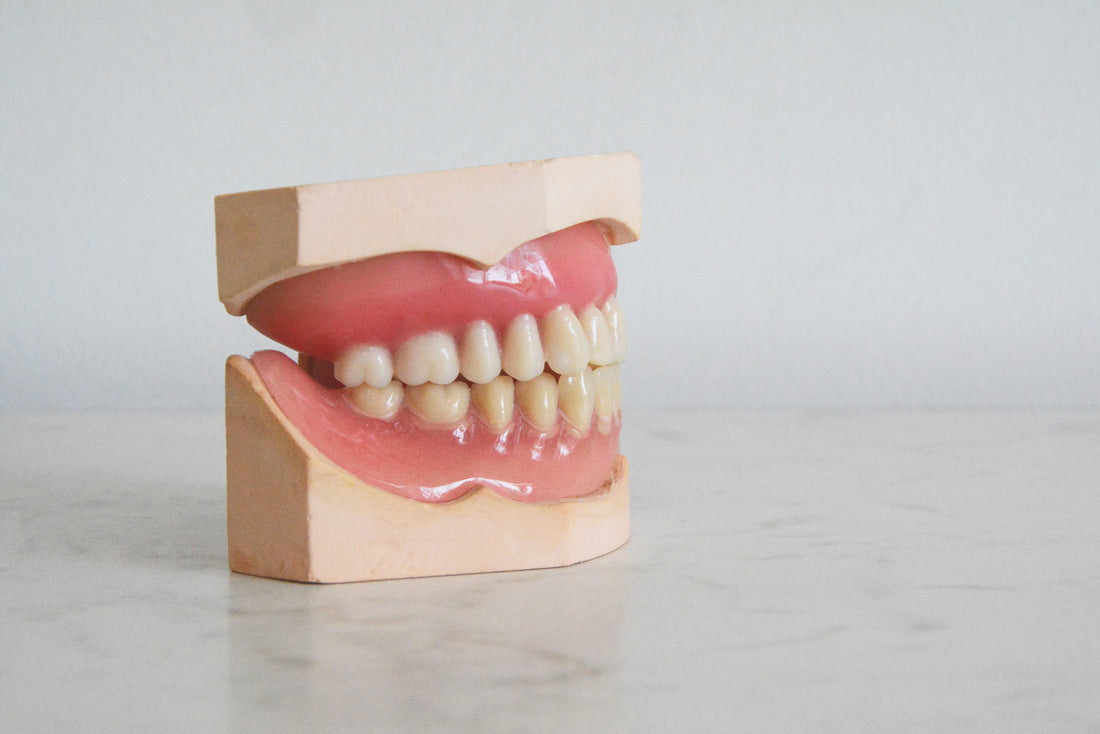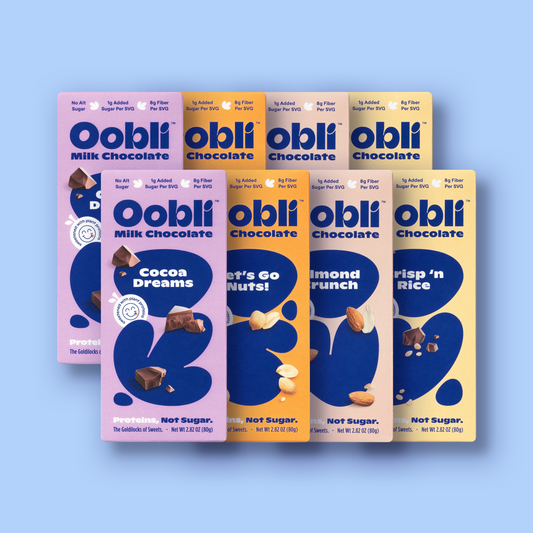Maintaining good oral health is a critical aspect of our overall health, and looking after our smiles is essential for our self-esteem whenever anyone gets their camera out. Most of us are familiar with the connection between sugary foods and dental problems, but what about artificial sweeteners?
Aspartame, a widely used sugar substitute, has garnered both popularity and controversy in recent years. Many people turn to aspartame to reduce their sugar intake, but is aspartame bad for your teeth just like sugar?
In this article, we will delve into the science behind aspartame and teeth, its potential effects on oral health, and whether this chemical sweetener can be a tooth-friendly choice for those looking to satisfy their sweet cravings without compromising their pearly whites.
Is Aspartame Bad For Your Teeth?
So, is aspartame bad for your teeth? Does aspartame cause dry mouth? Let’s take a look at what the science says about aspartame and teeth, and help you decide whether this artificial sweetener is the best choice for your sparkling smile.
Does Aspartame Rot Your Teeth?
The primary concern surrounding aspartame's impact on teeth revolves around its potential to cause tooth decay. Unlike sugar, which provides a direct food source for harmful bacteria in the mouth, aspartame is not fermented by these microorganisms.
As a result, it doesn't contribute to the production of acids that can erode tooth enamel and lead to cavities. However, aspartame naturally has quite a high acid content, which can erode enamel.
So, does aspartame rot your teeth? Yes - just like sugar, aspartame consumption can lead to the breakdown of tooth enamel, which can cause tooth decay.
Does Aspartame Cause Dry Mouth?
One potential side effect of aspartame consumption is dry mouth. Dry mouth occurs when the mouth does not produce enough saliva, and saliva plays a crucial role in maintaining oral health. Saliva helps to neutralize acids, clean the mouth, and protect against tooth decay.
Does aspartame cause dry mouth? For some people, yes. Consuming products sweetened with aspartame can block saliva production, which makes it harder to neutralize acids in the mouth and can lead to tooth decay.
What You Need to Know About Aspartame Teeth Pain
For some people, aspartame teeth pain is one of the worst side effects of this artificial sweetener. While aspartame itself doesn’t usually cause teeth pain, some of the ingredients that are used with aspartame, like phosphoric or citric acid, do.
Many people find they have aspartame teeth pain after eating cakes or baked goods containing the sweetener. It’s recommended to reduce your aspartame intake or avoid sweeteners altogether if you experience aspartame teeth pain.
Sugar vs Aspartame Teeth Effects: Which is Worse?
When it comes to sugar vs aspartame and teeth, it’s hard to find a clear winner because both are bad! As we all know, sugar can cause big problems for our teeth, including serious tooth decay.
The problem is, that while aspartame is often used as a “healthier” option for sugar, the aspartame effect on teeth really isn’t any better. Aspartame can cause oral hygiene issues that are just as severe as sugar, and certainly won’t protect your teeth.
So is Aspartame Bad For Your Teeth?
Is aspartame bad for your teeth? Does aspartame rot your teeth? Yes. While it’s not talked about as much as sugar, the high acid content of aspartame and other sweeteners means that you may experience aspartame oral bacteria imbalances, tooth pain, and decay.
Other Issues With Aspartame Beyond Your Oral Health
Not only is aspartame bad for your teeth, but it brings a number of other health concerns, leading many people to consider a detox from aspartame.
Neurological Concerns
Many people experience serious neurological symptoms after consuming aspartame, including headaches, migraines, dizziness, and cognitive issues. These reports have led to concerns that aspartame has adverse effects on the nervous system.
If you are sensitive to aspartame or have a history of neurological issues, it may be wise to avoid aspartame as much as possible and carefully monitor your symptoms after you consume anything containing aspartame.
Potential Digestive Disorders
Aspartame consumption also causes digestive symptoms in many people. Symptoms such as bloating, gas, and stomach discomfort have been commonly reported. These aspartame intolerance symptoms are often painful, making it best to avoid the sweetener if you’re affected.
Allergic Reactions and Sensitivities
Aspartame is composed of two amino acids, phenylalanine and aspartic acid, which are naturally found in many protein-containing foods. However, some individuals may have allergies or sensitivities to these amino acids or to aspartame itself.
Phenylketonuria (PKU) is a rare genetic disorder in which the body cannot metabolize phenylalanine properly. People with PKU must avoid aspartame since it contains phenylalanine, which can accumulate in their bodies and lead to severe health issues.
Does aspartame cause inflammation? Yes - as aspartame is broken down, it can cause inflammation, potentially contributing to chronic inflammatory diseases like diabetes, heart disease, and arthritis.
Is There a Better Alternative Sweetener to Aspartame?
If you’re concerned (with good reason!) about aspartame effect on teeth and other aspects of your health, you might be on the hunt for alternatives. Let’s take a look at some of your options when it comes to avoiding aspartame.
First, what about other artificial sweeteners? When it comes to sucralose vs aspartame, there sadly isn’t much difference. Many people experience side effects from this sweetener as well, including the infamous sucralose headache.
Also, if you’re on a keto or low-sugar diet, sucralose might not be the answer you’ve been looking for, as new research around sucralose keto diets shows that sucralose might not be as keto-friendly as we first thought.
Ok, what about other artificial sweeteners? Unfortunately, there are many side effects of erythritol and other sugar alcohols, and stevia tastes bad! Speaking of stevia, there are concerns around stevia and pregnancy, as well as how much stevia is too much.
The Limitations of Traditional Natural Sweeteners
Given that this pretty much rules out all the artificial sweeteners, what about natural sweeteners like honey or agave? Unfortunately, these sweeteners still contain high levels of sugar, which can still damage your teeth and isn’t ideal if you’re counting calories.
Plus, natural sweeteners often have a distinctive taste that can overpower whatever they are added to, which means they’re not always suitable as a sugar alternative. So, what can you use instead? Luckily, we have the perfect answer here at Oobli!
Unveiling Sweet Proteins: Nature’s Gift
Finally, the answer you’ve been searching for is here: sweet proteins! Sweet proteins are naturally occurring proteins found in tropical fruits, and can be up to 5,000 times sweeter than sugar itself, making these natural molecules the perfect sugar alternative.
Can sweet proteins be used as a sugar substitute? Yes! Sweet proteins are a perfect sugar substitute because they contain no calories and are keto-friendly. Other benefits of sweet proteins are that they don’t require nearly as much land or water to produce as regular sugar.
How are sweet proteins made? Here at Oobli, we’ve perfected a precision fermentation protein, which lets us produce natural sweet proteins using a similar technique to how beer, wine, and cheese are made.
Why Oobli is a Smile's Best Friend
When you choose Oobli, you can finally stop worrying about the effects of sugar or artificial sweeteners on your teeth. Unlike the issues we discussed with aspartame oral bacteria and tooth decay, sweet proteins don’t cause any issues with your teeth. Doesn’t that just make you smile?!
If you’re ready for a sweet treat that won’t take away from your pearly whites, give Oobli a try! We have the best sugar free drinks and drinks without aspartame - just try our incredibly refreshing, sweet, low sugar tea. You won’t believe there’s only 7g of sugar in this delicious, fruity iced tea!
If chocolate is more your style, you’ll be relieved to hear that you don’t have to sacrifice decadence to protect your teeth. Our rich, creamy, dark chocolate bars use the power of sweet proteins to bring you incredible flavor without any harmful, artificial ingredients.
Final Thoughts on Aspartame and Teeth
As you can see, it’s good to be concerned about aspartame effect on teeth. This artificial sweetener can wreak havoc on your pearly whites, by causing aspartame oral bacteria issues and having a high acid content that leads to tooth decay.
So, if sugar and artificial sweeteners are both bad for your teeth, what can you eat instead? Are you stuck with bland foods if you want to protect your smile? Not at all - you just need to make the switch to sweet proteins!
A tiny amount of sweet protein can pack a real punch, making these natural molecules the best way to sweeten your favorite treats, without sacrificing other aspects of your health or dealing with the side effects caused by aspartame and other sweeteners.
Find something to smile about with Oobli’s delicious, healthy, sweet treats that won’t harm your teeth. Get yours today!




